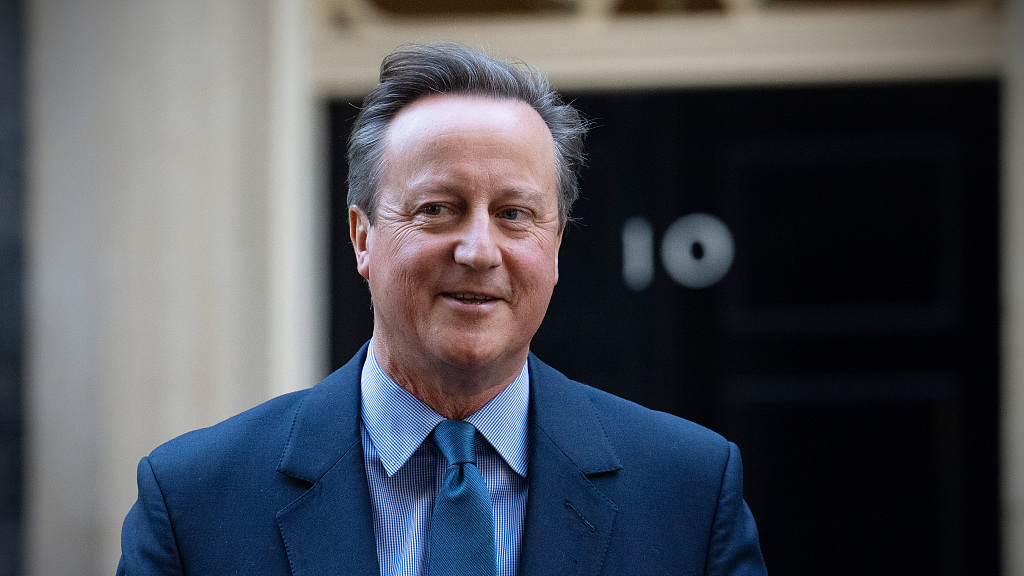British Prime Minister Rishi Sunak brought back former prime minister David Cameron as foreign minister on Monday in a reshuffle triggered by his firing of interior minister Suella Braverman after her criticism of police threatened his authority.
It was the latest reset for a prime minister whose party is badly lagging the Labour Party before an election expected next year. The return of Cameron suggested Sunak wanted to bring in more centrist, experienced hand rather than appease the right of his party which supported Braverman.
It also awakens divisive debate over Brexit: Britain's decision to leave the European Union, which Cameron triggered by holding a referendum in 2016 even though he backed staying in the bloc.
Under fire from opposition lawmakers and members of the governing Conservative Party to eject Braverman, Sunak seemed to have brought forward a long-planned reshuffle to bring in allies and remove ministers he felt were not performing.
His hand was forced when the ever-controversial Braverman defied him last week in an unauthorized article accusing police of "double standards" at protests, suggesting they were tough on right-wing demonstrators, but easy on pro-Palestinian marchers.
The opposition Labour Party said that inflamed tensions between a pro-Palestinian demonstration and a far-right counter protest on Saturday, when nearly 150 people were arrested.
While her removal was not a surprise, it was the appointment of Cameron which caused shock in the Conservative Party, welcomed by more centrist lawmakers but hated by some of the right who described it as the ultimate "Brexit surrender."
Cameron said he was glad to take on his new role because at a time of global change, "it has rarely been more important for this country to stand by our allies, strengthen our partnerships and make sure our voice is heard".
"Though I may have disagreed with some individual decisions, it is clear to me that Rishi Sunak is a strong and capable prime minister, who is showing exemplary leadership at a difficult time," he wrote on X, formerly Twitter.
Brexit Returns
Lawmakers in the centrist wing of the party said Cameron's appointment would bring international experience, and send a wider message to the country.
"It's a sign to the Tory blue wall and moderate voters, we aren't heading to the right," one Conservative lawmaker said, using a phrase that is used to describe traditional Conservative-supporting areas in the south of England.
Some lawmakers had feared that Braverman was determined to remake the Conservatives as the "nasty party", a moniker former Prime Minister Theresa May used in 2002 to try to persuade the party to shed its reputation of being uncaring.
Some Brexit supporters also said the fact Cameron had campaigned for Britain to stay in the European Union after he called a referendum on membership for 2016 meant the so-called "remain" wing of the party had taken over.
James Cleverly, previously foreign minister, was appointed to replace Braverman. He is seen as a safe pair of hands and was quick to say his new role was "to keep people in this country safe."
Labour had called Sunak weak since Braverman's article was published on Wednesday. Now, opposition lawmakers say his decision to appoint Cameron was an act of desperation.
Lawmaker Pat McFadden, Labour's national campaign coordinator, said: "A few weeks ago Rishi Sunak said David Cameron was part of a failed status quo, now he's bringing him back as his life raft."
"This puts to bed the prime minister's laughable claim to offer change from 13 years of Tory failure."
(With input from Reuters)


